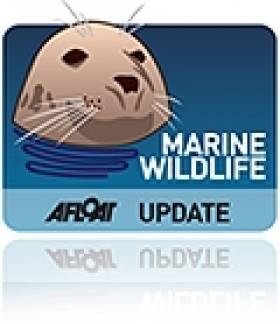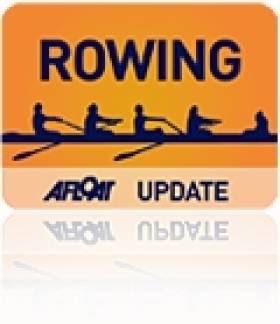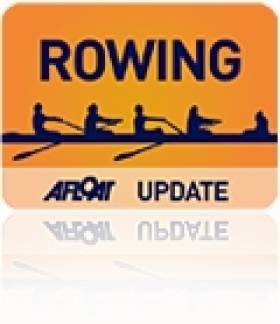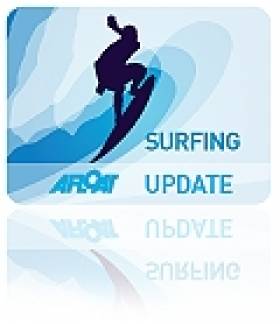Displaying items by tag: California
Lisburn's Resident 'Sealebrity' Lights Up Social Media
#MarineWildlife - Northern Ireland's Exploris aquarium has put out a call to Lisburn locals to help them track down a notorious resident seal who's become somewhat of a landlubber.
As Lisburn Today reports, Sammy – as the seal's been named on social media – has been a regular fixture in the Laganside town for a number of years, and has recently been spotted as far as seven miles inland.
Various reports have described the unique habits of this 'sealebrity' who's been spotted walking the towpath at Lisburn's civic centre towards Hill Street near the centre of town.
But until now staff at Exploris have been unable to get a hold of Sammy to check on the seal's condition.
“We would very much like to get a closer look at her," they said in a recent appeal. "If you see her please call us!”
Elsewhere, sea lions in California are having a tough time of it due to rising ocean temperatures in the Pacific.
And according to Salon, it's a situation that will only get worse when the effects of human-induced global warming take hold.
Some 1,800 stranded sea lion pups have been recorded on California's beaches in just the first two-and-a-half months of this year, many of them in an emaciated state.
Warming waters hostile to key fish species and micro-organisms have been blamed for this phenomenon, as the sea lions are forced to swim exhausting distances for sustenance.
The flight of fish to more suitable temperatures elsewhere is also having an impact on fishing communities up and down America's western seaboard.
But while the cause of the current 'hot spot' may be "a fluke of climate variability", for some experts it points to future trends in the world's largest ocean. Salon has more on the story HERE.
Irish Boat Disputes Lead in Pacific Rowing Race
#OCEAN ROWING: Battleborn, the crew skippered by Irishman Philip Cavanagh and carrying the Irish flag, has been disputing the lead in the Great Pacific rowing race. The crew lay second this morning to Uniting Nations in the race from Monterey in California to Hawaii which is in its seventh day. Battleborn has covered more miles than Uniting Nations but has been heading south of the direct line. According to the organziers Battleborn reported that they may look like they’re going off course “but there will be a strategy … avoiding the rough stuff and catching the handy trade winds.”
Cavanagh’s crew is completed by a Welshman, Barry Hayes, an Englishman, Darren Taylor, and an Australian, Dan Kierath.
Irishman Prepares For Pacific Rowing Race
#OceanRowing: Irishman Philip Cavanagh is set to compete in the Great Pacific rowing race from Monterey in California to Honolulu in Hawaii next summer. Cavanagh is putting together a four-person team, which will be called Battleborn. Barry Hayes from Wales and Englishman Howard Wagstaff are already signed up. None of the three had been rowers prior to committing to this project.
The race, which the organisers hope to run every two years, covers approximately 2,100 nautical miles (2,400 miles; 3,890 kilometres) and there will be trophies for the fastest four, pair and single to complete the journey. Nineteen crews (seven fours, six singles and six pairs) intend to compete.
#CALIFORNIA YACHT ACCIDENT - Three sailors are dead and a fourth is missing at sea after their racing yacht disintegrated after a collision with a larger boat off the coast of California, as Sky News reports.
The 37-foot racing yacht the Aegean was competing in the 124-mile Newport to Ensenada Race when it disappeared off the official race tracking system near the US-Mexico border on Saturday.
Race patrol officer Eric Lamb spotted the debris of the yacht, which investigators believe collided with a much larger ship such as a freighter or tanker. Lamb commented that the boat looked as if it "had gone through a blender".
The bodies of three crew were recovered by the US Coast Guard, but the search continues for a fourth person is still missing in the Pacific Ocean.
It marks the second major yacht racing accident to result in deaths in recent weeks, coming just a fortnight after Irish sailors Alan Cahill and Elmer Morrissey were lost in what was described as San Francisco's worst ever yachting accident.
Search Ends for Missing Sailors in San Francisco Yacht Tragedy
#MISSING SAILORS - The US Coast Guard last night suspended its search for four yacht crew members - including two Irish sailors - who went missing after what's being described as San Francisco's worst ever sailing accident, Fox News reports.
Petty Officer Caleb Critchfield told the Associated Press: "There's a window of survivability and we searched well beyond that window."
Boats and aircraft had combed over 5,000 square miles of ocean in a marathon 30-hour operation before the search was halted at sunset last night. It is not expected to resume.
As previously reported on Afloat.ie, the missing include Irish yachtsmen Alan Cahill, originally from Blarney in Co Cork, and his friend Elmer Morrissey, who had moved to the US for work only last year, according to friends and colleagues on Facebook.
The two men, along with fellow crew Jordan Fromm, Alexis Busch and Marc Kasanin, were thrown into the frigid water after their 38-foot yacht Low Speed Chase ran aground at the Farallon Islands, some 25 miles off the coast of San Francisco in northern California.
Three other crewmembers, including the boat's owner and skipper James Bradford, were rescued from the rocks shortly after the incident. The body of Kasanin, 45, was recovered from the water hours later.
The boat had been competing in the Full Crew Farallones Race with 40 other yachts between San Francisco and the islands when the tragedy occurred.
Known for its rough conditions with 14-foot swells and winds of up to 20 knots, the near-century old tradition has "never been for the faint of heart".
Irish Surfer Needs Funds to Attend Big Wave Awards
#SURFING - A young surfer from Lahinch in Co Clare is in the running for the 'biggest wave' prize in the 2012 Billabong XXL contest for his monster ride at Mullaghmore Head, The Irish Times reports.
Ollie O'Flaherty, 24, is nominated along with Devon's Andrew Cotton for the massive surf they caught off Co Sligo on 8 March last.
It was the first visit to the world-class big wave spot by O'Flaherty, a science student at NUI Galway who is a veteran of the Co Clare scene.
As previously reported on Afloat.ie, it was Cotton who tackled the biggest wave on that day - a giant 50-footer - as some of the world's top surfers took advantage of the Viking swell.
Also nominated for the $50,000 (€38,280) prize is Irish-American surfer Garrett McNamara, who last year rode what is being called the biggest wave ever surfed in the world, a 90-foot goliath off Nazaré in Portugal.
According to the Irish Independent, O'Flaherty has put out a call for sponsorship so he can attend the awards ceremony next month.
"It's a massive honor to be able to represent Ireland," he said, but added that he is "pretty much on the breadline from what I'm doing".
Should he win, the Lahinch native said he intends to "put every cent back into surfing" and replace his seven broken boards.
The winners will be announced at the Billabong XXL Big Wave Awards in Anaheim, California on 4 May.



































































